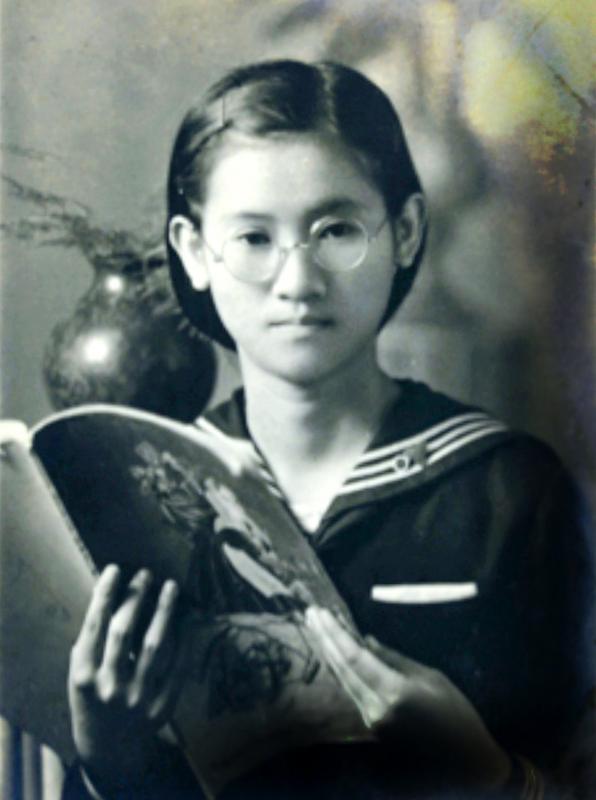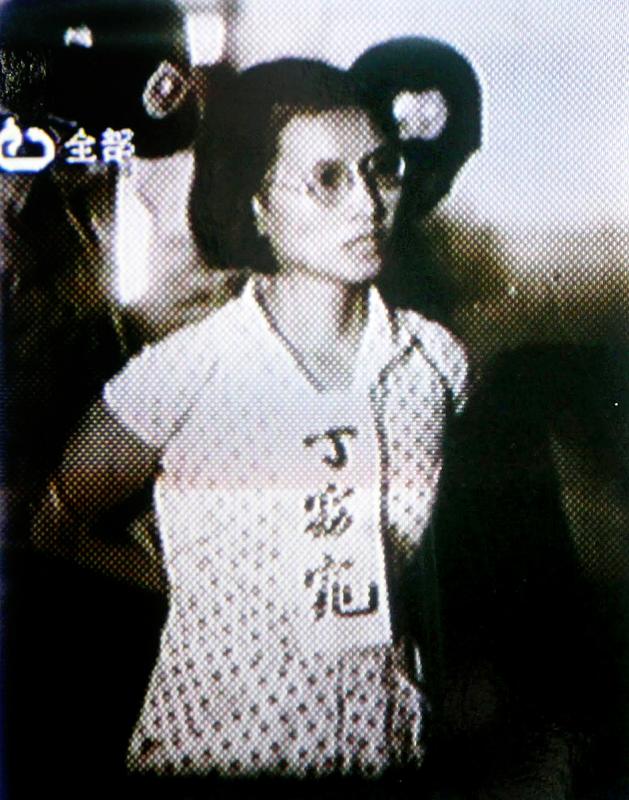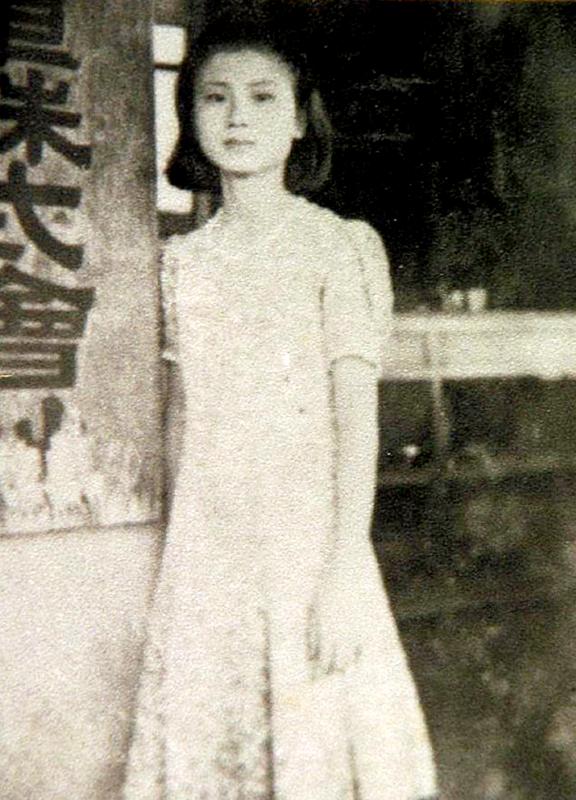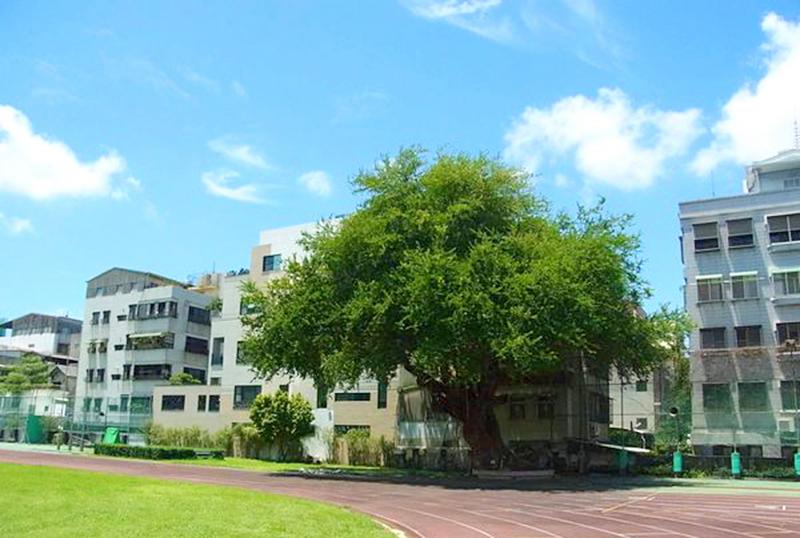July 19 to July 25
The little girl clutched on to her mother and repeatedly cried, “My mom isn’t a bad person, don’t execute her!” She was born and raised in prison, and most likely knew what it meant when an inmate was abruptly handcuffed and dragged away.
The guards ignored her cries, and Ting Yao-tiao (丁窈窕), her mother, met her end that day by firing squad.

Photo courtesy of Wikimedia Commons
It was July 24, 1956, two years after Ting and her close friend Shih Shui-huan (施水環) were arrested for allegedly spying for the “communist bandits.” Both women were executed that day, and later accounts indicate that they were likely innocent victims of a fabricated accusation. Ting was 28, Shih was 29.
Although the bulk of White Terror victims were men, there were also numerous women who were arrested and executed under suspicion of working for the Chinese Communist Party. According to Women and White Terror Political Incidents (女性與白色恐怖政治事件), a paper by Yang Tsui (楊翠), 26 women were confirmed to have been executed. The real number is probably higher. Like Ting and Shih, most of them were educated, working women in their 20s. Quite a few raised their children in jail.
Survivor Chang Chang-mei (張常美) recalls the terrible conditions and the torture they endured, and recalls watching at least seven cellmates being carted off to the execution grounds. She clearly remembers Ting’s daughter crying that day. In a 2015 Human Rights Museum documentary, where she was the only female interviewee, Chang says she will never forgive the government.

Photo courtesy of Wikimedia Commons
“I’m not that generous,” Chang says.
TROUBLE BREWING
Shih and Ting met while working for the Post, Telephone and Telegraph Administration in Taipei. They later served together at a post office in Tainan.

Photo courtesy of Wikimedia Commons
According to an article on the Taiwan Association of Truth and Reconciliation Web site, trouble began when a man began pursuing romantic relations with Shih. Ting had doubts about his character, and advised Shih to stay away from him. In revenge, the man tried to report Ting as a communist spy to the authorities after spotting a banned book on her desk.
Fortunately, Ting’s colleague Wu Li-shui (吳麗水) intercepted the letters and burnt them.
Several years earlier, the Post, Telephone and Telegraph Administration was caught up in a White Terror incident. According to government sources, the Chinese communists had sent two secret agents to Taiwan, who, with the help of Taiwanese communist Tsai Hsiao-chien (蔡孝乾), quickly infiltrated the office’s institutions and set up four cells under the guise of teaching Mandarin. Tsai joined the Chinese Nationalist Party (KMT) after he was arrested in 1950, which led to the exposure of the operation. Up to 35 people from the Post, Telephone and Telegraph Administration’s Taipei office were arrested as a result.

Photo courtesy of Wikimedia Commons
Two years later, Shih’s younger leftist brother Shih Chih-cheng (施至成) ran afoul of the government and went into hiding. He spent two years living in the ceiling of Shih’s residence.
In 1954, the authorities continued their purge of the Post, Telephone and Telegraph Administration by raiding its branch in Tainan. This was allegedly sparked by the detainment of an employee in Keelung, who admitted to badmouthing the government but added that he had heard these things from Wu while working in Tainan. Wu was soon arrested, and after being severely tortured, he admitted to burning the letters and committing other crimes of subversion.
Ting’s verdict states that she was sent by the communist agents in the Taipei office to establish a youth branch in Tainan, with Wu serving as secretary. Shih was accused of joining the branch and introducing two “bandits” to Ting.
AWAITING THEIR FATE
There is no evidence that this branch, nor several of the organizations mentioned in the verdict, ever existed. Coworker Lei Shui-chuan (雷水湶), who managed to avoid his own death sentence, claims that the secret police made everything up.
Ting was likely arrested because of the letters, and Shih was probably nabbed for harboring her brother. He fled after her arrest, and while several people served significant jail time for helping him, he was never found.
Shih wrote 68 letters to her family during her incarceration.
“Don’t you worry, I believe that a righteous judge will clear our name from this disaster. We are law-abiding citizens, and we would never dare do anything that was against the law,” she wrote in her third letter sent in October 1974.
This judge never appeared, and Shih’s condition deteriorated as she suffered from stomach pain and insomnia, and her right eye was seriously damaged during an interrogation session.
Both Ting and Shih worked in a sewing factory on the prison grounds. In her last letter back home, Shih asked her sister to send her some cloth with cute patterns to give to one of the prison children. She had converted to Christianity at the urging of her mother several months earlier.
“Every morning, I do what mother says and read the bible and pray for God’s grace,” she writes. “I hope that God’s grace falls upon our whole family. Amen.”
She was executed two days later.
One day in the hospital infirmary, Ting ran into her former lover Kuo Chen-chun (郭振純), who was awaiting sentencing for allegedly participating in seditious activities. Ting told Kuo that she had left a cigarette box in the field and asked him to retrieve it the next day. Inside it was a lock of her hair and a farewell letter.
Kuo was released from jail in 1975, and he buried the lock of hair under a Madras thorn tree at Ting’s alma mater, Tainan Girls’ Senior High School. The tree collapsed in 2015 during a typhoon, but it was revived and still stands today.
Taiwan in Time, a column about Taiwan’s history that is published every Sunday, spotlights important or interesting events around the nation that either have anniversaries this week or are tied to current events.

Jacques Poissant’s suffering stopped the day he asked his daughter if it would be “cowardly to ask to be helped to die.” The retired Canadian insurance adviser was 93, and “was wasting away” after a long battle with prostate cancer. “He no longer had any zest for life,” Josee Poissant said. Last year her mother made the same choice at 96 when she realized she would not be getting out of hospital. She died surrounded by her children and their partners listening to the music she loved. “She was at peace. She sang until she went to sleep.” Josee Poissant remembers it as a beautiful

March 2 to March 8 Gunfire rang out along the shore of the frontline island of Lieyu (烈嶼) on a foggy afternoon on March 7, 1987. By the time it was over, about 20 unarmed Vietnamese refugees — men, women, elderly and children — were dead. They were hastily buried, followed by decades of silence. Months later, opposition politicians and journalists tried to uncover what had happened, but conflicting accounts only deepened the confusion. One version suggested that government troops had mistakenly killed their own operatives attempting to return home from Vietnam. The military maintained that the

Before the last section of the round-the-island railway was electrified, one old blue train still chugged back and forth between Pingtung County’s Fangliao (枋寮) and Taitung (台東) stations once a day. It was so slow, was so hot (it had no air conditioning) and covered such a short distance, that the low fare still failed to attract many riders. This relic of the past was finally retired when the South Link Line was fully electrified on Dec. 23, 2020. A wave of nostalgia surrounded the termination of the Ordinary Train service, as these train carriages had been in use for decades

Lori Sepich smoked for years and sometimes skipped taking her blood pressure medicine. But she never thought she’d have a heart attack. The possibility “just wasn’t registering with me,” said the 64-year-old from Memphis, Tennessee, who suffered two of them 13 years apart. She’s far from alone. More than 60 million women in the US live with cardiovascular disease, which includes heart disease as well as stroke, heart failure and atrial fibrillation. And despite the myth that heart attacks mostly strike men, women are vulnerable too. Overall in the US, 1 in 5 women dies of cardiovascular disease each year, 37,000 of them